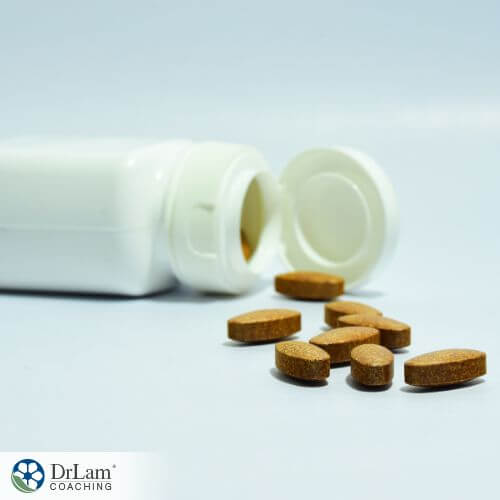 Hypertension, also known as high blood pressure, is estimated by the World Health Organization to affect around 1.28 billion adults around the world. High blood pressure can be a silent killer as many are unaware they have it until it is too late (1). Many different strategies can help to manage blood pressure, including medication, nutrition, lifestyle changes, and supplementation. Indeed, there are hundreds of different supplements that can potentially help to manage blood pressure. However, with so many different supplements available, it can be confusing to determine which ones can be helpful. Today's article will focus on one of these supplements, carditone. Carditone is a supplement designed to support heart health, specifically blood pressure. This article will look at what exactly carditone is, its ingredients, and how it works, as well as cautions to be mindful of.
Hypertension, also known as high blood pressure, is estimated by the World Health Organization to affect around 1.28 billion adults around the world. High blood pressure can be a silent killer as many are unaware they have it until it is too late (1). Many different strategies can help to manage blood pressure, including medication, nutrition, lifestyle changes, and supplementation. Indeed, there are hundreds of different supplements that can potentially help to manage blood pressure. However, with so many different supplements available, it can be confusing to determine which ones can be helpful. Today's article will focus on one of these supplements, carditone. Carditone is a supplement designed to support heart health, specifically blood pressure. This article will look at what exactly carditone is, its ingredients, and how it works, as well as cautions to be mindful of.
Before looking at the benefits of carditone, it's important to understand what blood pressure is and how your body manages it. Your blood pressure is the pressure that your blood exerts on your arteries and veins. There are two numbers when measuring blood pressure, these are referred to as your systolic (the top number) and diastolic blood pressure (the bottom number).
For optimal health, your systolic blood pressure should be below 140mmHg and your diastolic blood pressure should be below 90mm/hg (1).
To regulate blood pressure within your body your body has specific systems in place. These are:
Due to factors such as poor nutrition, a sedentary lifestyle, a higher weight, and high stress, the functioning of these systems can start to decline. This can result in higher blood pressure, which can increase the risk of strokes and heart attacks.
Stress is one factor that can have a major effect on your blood pressure. When you experience stress, your adrenal glands release cortisol, one of the main stress hormones to help your body respond to this stress. Additionally, there is a system called the NeuroEndoMetabolic (NEM) Stress Response System that supports your body during stress. There are six circuits of related organs within this system, and one of them is the Cardionomic circuit. This circuit consists of your adrenal glands, your cardiovascular system, and your autonomic nervous system and helps to manage short-term stress.
During stress, this system gets activated and one of the effects of this activation is that your heart rate increases and your blood pressure can increase. Since this system is designed for short-term stress, when the stress becomes long-term, it can reduce the functioning of the cardionomic circuit. Additionally, your adrenal glands can become depleted, and this can cause Adrenal Fatigue Syndrome (AFS). This is the non-Addison's form of adrenal dysfunction, where the body's stress response cannot keep up with life's chronic stressors.
This can result in a range of different symptoms that include:
Determining the root cause of this stress is important in helping to balance this circuit; however, if you are experiencing high blood pressure as a result, carditone may help you find relief.
 Carditone is an herbal ayurvedic supplement designed to support heart health and ensure optimal blood pressure. Ayurveda is an ancient Indian healing modality; therefore, the majority of the herbs that carditone uses originate from India.
Carditone is an herbal ayurvedic supplement designed to support heart health and ensure optimal blood pressure. Ayurveda is an ancient Indian healing modality; therefore, the majority of the herbs that carditone uses originate from India.
The main carditone benefits include:
This supplement uses a blend of different ingredients to support your heart health. These ingredients are:
Let's take a look at how each of these ingredients works in your body.
This plant contains many beneficial compounds including flavonoids, alkaloids, tannins, and phenols. There are a range of alkaloids within rauwolfia that act as anti-hypertensive agents; one of the main alkaloids is reserpine. These alkaloids work by depleting catecholamine hormones that work to increase heart rate and blood pressure. They also inhibit the angiotensin-converting enzymes (ACE), thus helping to relax the veins and arteries and helping to reduce blood pressure (2).
One of the compounds within this plant is taraxerol. This compound can bind to the mineralocorticoid receptor within the body. This receptor can then regulate blood pressure by responding to the aldosterone in the kidney. Aldosterone is a hormone that your adrenal glands produce which causes changes in your blood pressure. By stimulating this receptor, it activates its function of regulating blood pressure (3).
The bark of this plant is commonly used due to its health benefits. Terminalia arjuna can enhance your heart health in many different ways which include:
Not only can this help reduce blood pressure, but it also can help to reduce high cholesterol and heart conditions (4).
These two herbs can help to manage blood pressure indirectly by optimizing your kidney health. If your kidneys are not functioning optionally, they might not be able to respond to aldosterone as effectively, and this can cause changes in your blood pressure. On the other end of the spectrum, high blood pressure can reduce your kidney health. By taking these two herbs they may be able to support your kidney health and help to improve it.
Whilst it is not an herb, this mineral plays an important role in heart health and is one of the reasons why it is an ingredient in carditone. It helps to increase nitric oxide, which helps with vasodilation, meaning it helps to relax your veins and arteries and helps to reduce blood pressure. It also acts as a calcium blocker. In simple terms, it prevents calcium from being released, which can increase blood pressure.
A study in 2019 focused on the long-term use of carditone and found that in individuals in the early stages of hypertension, the long-term use of carditone was safe. However, the study group was small, and more research within a larger study group is necessary (5).
Whilst carditone can be safe to use, some individuals can experience some side effects. In the study evaluating the safety of carditone, 30% of participants withdrew due to side effects. The main side effects were nasal congestion and fatigue (5). Some additional side effects that may be experienced are muscle contractions and weight gain. If you experience side effects while taking carditone, talk to your healthcare provider immediately.
 Pregnant and breastfeeding women should not take carditone. If you are considering trying out carditone, always chat with your healthcare professional before you try a new supplement, especially if you are on chronic medication or are experiencing depression and/or peptic ulcer disease.
Pregnant and breastfeeding women should not take carditone. If you are considering trying out carditone, always chat with your healthcare professional before you try a new supplement, especially if you are on chronic medication or are experiencing depression and/or peptic ulcer disease.
Carditone is available in capsule form, and the recommended dosage is one capsule once to twice daily. Dosages should be discussed with your healthcare provider.
The carditone supplement offers the potential to help manage blood pressure with its range of different herbs and minerals. Whilst it can be beneficial and have many positive effects on blood pressure, there are a few groups of individuals who may not be able to take it. This is why it's important to always check with your healthcare professional before trying a new supplement.
If you are finding that your heart is beating faster than usual or you are concerned about your blood pressure and the effect of stress on your heart health, the team at Dr. Lam can provide support. You can either call us directly or click here for a free initial call.
World Heart Federation. “Hypertension | What We Do | World Heart Federation.” World Heart Federation, 24 Aug. 2023, world-heart-federation.org/what-we-do/hypertension.
Shah, Syed Muhammad Ali, et al. “Antihypertensive and Antihyperlipidemic Activity of Aqueous Methanolic Extract ofRauwolfia Serpentinain Albino Rats.” Dose-Response, vol. 18, no. 3, July 2020, p. 155932582094207. https://doi.org/10.1177/1559325820942077.
Somarathinam K, et al. "Antihypertensive Effects of Pentacyclic Triterpenoid from Convolulus Pluricaulis and its Plausible Mechanism of Action Hypothesizing its Selectivity Targeting Mineralocorticoid Receptor of RAAS." Phytomedicine Plus, vol. 3, no. 1, Feb. 2023, https://www.sciencedirect.com/science/article/pii/S2667031323000040
Dwivedi, Shridhar, and Deepti Chopra. “Revisiting Terminalia Arjuna – an Ancient Cardiovascular Drug.” Journal of Traditional and Complementary Medicine, vol. 4, no. 4, Oct. 2014, pp. 224–31. https://doi.org/10.4103/2225-4110.139103.
Ryan, Jennifer, et al. “Prospective Safety Evaluation of a Cardiovascular Health Dietary Supplement in Adults With Prehypertension and Stage I Hypertension.” Journal of Alternative and Complementary Medicine, vol. 25, no. 2, Feb. 2019, pp. 249–56. https://doi.org/10.1089/acm.2018.0311.
During stress, your blood pressure can increase as well as your heart rate. Whilst carditone can help to lower your blood pressure and heart rate, potentially helping to induce a state of calmness, there are a range of other supplements that may help to support your body better during stress.
